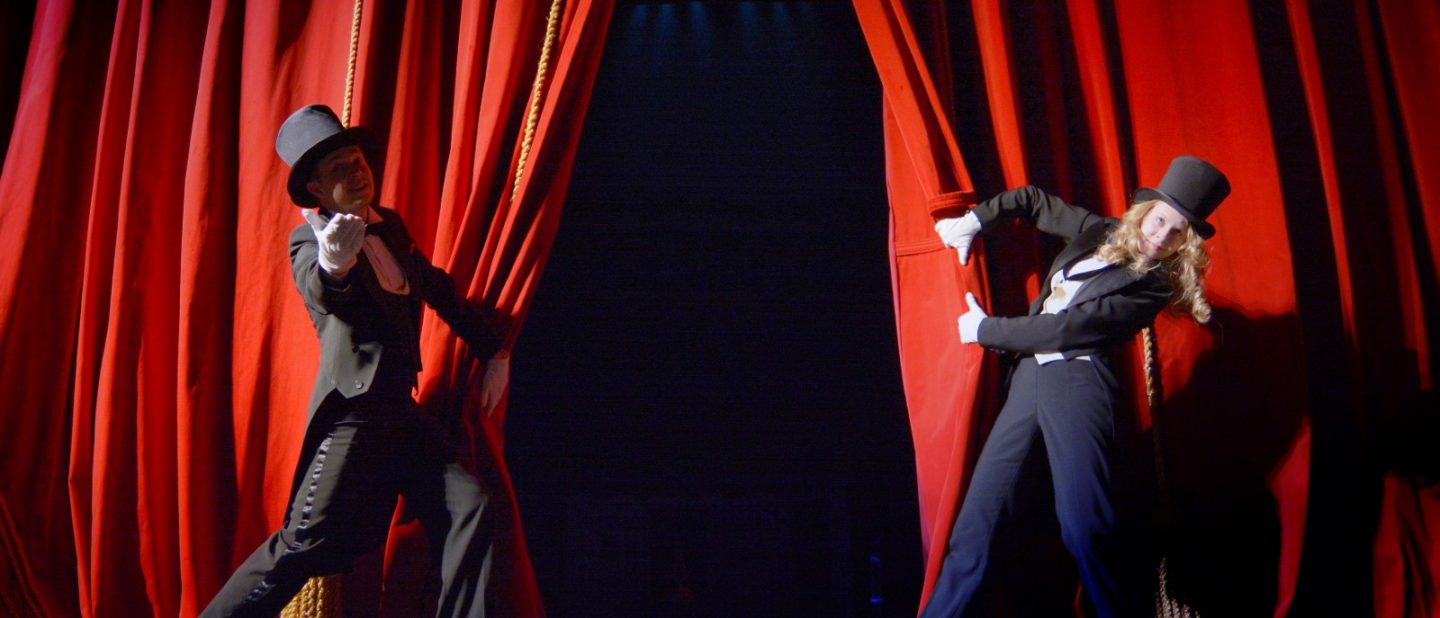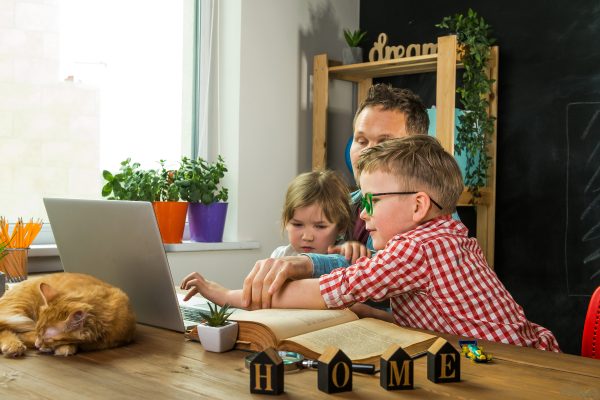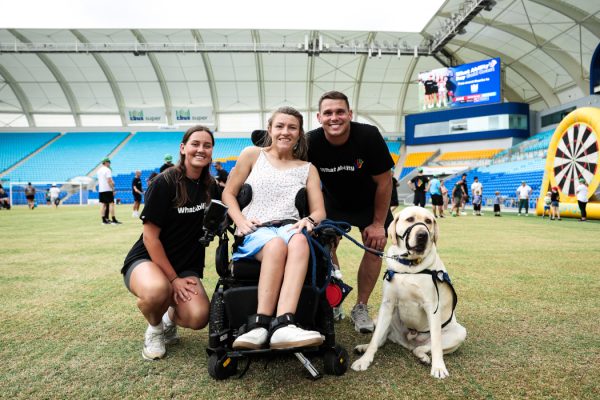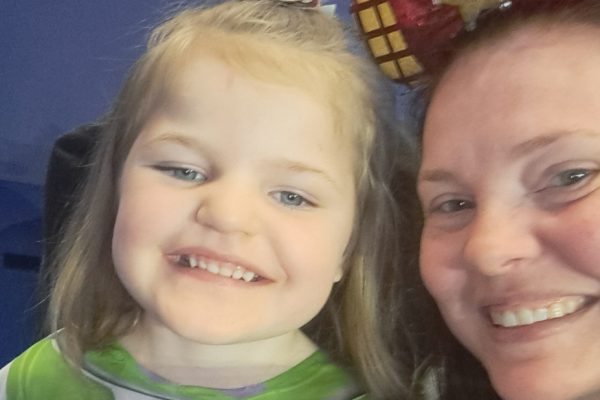
Is everyone really welcome? Making entertainment more accessible
By Katherine Granich
Does the idea of taking your disabled child to a live performance sound like an impossible dream? Accessible entertainment is becoming more common – here’s what to think about.
In my pre-child days, camping out overnight on the footpath outside of the box office trying to get tickets for my favourite band wasn’t unheard of. As a parent, I’m now more used to hovering over my computer keyboard, frantically refreshing my screen as I try to book seats to my kids’ favourite acts.
With a disabled child, though, it’s not so straightforward. What is simple – and sad, and frustrating – is that if I want to take my disabled child to a live event, it’s going to cost me a lot more in time, money spent, and effort than another parent trying to go to the same show.
For my four-year-old’s recent outing to see The Wiggles on tour, it took four presales, six phone calls, a slew of emails, and a couple of hours trawling websites before I managed to book what I hoped were the best seats for her needs. My daughter is vision impaired, so we needed close proximity to the stage; the venue had “accessible” seating but it was geared toward wheelchairs, and too far away for her to be able to see anything. That’s how we ended up three rows from the front, and paying for the “privilege” of disability to get those seats.
The Wiggles were fantastic, and seeing my daughter’s reaction to her singing, dancing heroes brought me to (happy) tears. But for many parents, the challenge of taking a disabled child to a live performance can feel very intimidating. If you’re thinking about taking your child to a live performance or event, here are some ideas that might make things a bit more fun and a bit less stressful.
“Accessibility” isn’t one- size-fits-all
Most major venues have areas for people who use wheelchairs, and their companions, to enjoy the show with dignity and comfort. Mobility parking areas are also helpful, and for major events, venues will usually offer drop- off areas right next to the entrance so that people with limited mobility or in wheelchairs don’t have to battle crowds
to get from the carpark to the front door. Entrances with wide automatic doors, ramps, spacious lifts, and disabled toilets with appropriate changing facilities should be standard for big venues, but aren’t always in place, so it’s best to check venues directly to see if they have what you need.
The website changingplaces.org.au has a “master list” of Changing Places facilities, which are suitable for people who cannot use standard accessible toilets, include a height-adjustable adult-sized change table, ceiling hoist, and more, and require an access key. The website also tells you where to find events and festivals that will be using Marveloos and Placeable Pods (portable accessible toilets).
Look for “friendly” events
Many venues and acts are waking up to the reality that making events disability accessible benefits everyone. Some will even put on special performances, so look for these:
• Relaxed, autism-friendly, or sensory sessions – the environment, lighting, sounds, and audience expectations have been adjusted to be more comfortable and flexible for
those with sensory difficulties, audience members can usually move around as they need to, and a “quiet space” may be available if you need a break
• Hearing loop – offers people with hearing aids the ability to boost the sound from the performance directly into their hearing devices
• Auslan interpretation – live sign- language interpreter
• Audio-described – verbal commentary for vision-impaired audience members that explains what is happening onstage
• Live captioned/subtitled – text on screens at the front of a performance, on a device, or via an app on your phone/tablet, featuring sound effects, music descriptions, song lyrics, and characters’ names along with the text
• Immersive or hands-on – may allow children to sit among performers or musicians, touch costumes, props, and instruments, and interact with aspects of the performance
Call the accessible ticket line
Ticketing agents usually have special phone lines you can ring to make accessible bookings; check their websites for instructions on where to call. Sometimes, you’ll need to contact venues directly to book accessible seats. Here’s a hint: Call before the presale (or before tickets go on general sale) to ask how you can make a booking for your child, as the phone lines are often swamped on presale days.
Strength in numbers
Do you have friends who would like to go to the same show, or do you belong to a parents’ group or support network who could approach a venue, promoter, or ticketing agent to ask for accommodations to be made? It’s often easier to band together as a group, so use whatever capital you might have to benefit not only your child, but other children who would love to go see a performance too. Get in touch as a group well ahead of the on-sale date, as including your group in the event’s planning is more likely when the details are still being worked out.
Be prepared
TAKE A HELPER: An extra adult can make all the difference to your child enjoying their outing to the event. From sending an adult ahead to scout out seating, to having one person to stay with your child while the other gets refreshments (or visits the merch stand), to simply seating the child between you so you can create a little “bubble” for the child to feel secure in, having a spare grownup along can be really helpful.
SUSS OUT THE PARKING BEFOREHAND: Find out where the most accessible parking is located and the easiest way to get to it. For children with limited mobility, you may be able to drop off near the door and then go park the car.
FIND OUT ABOUT THE VENUE: If you’ve never visited the venue before, give them a call (or a visit) and check out where the event will take place. Ask about toilets, changing areas, whether there are kitchen facilities, where you can dispose of medical waste, if there is a “quiet space” you can retreat to for feeding or to take a break, and what happens if there’s an emergency.
Feedback is important
If something goes well and the venue does a great job of accommodating your child’s needs, tell them about it – it may encourage them to offer more accessible events in the future. If you have suggestions for how accommodations or improvements can be made, mention them. Although venues are becoming ever more aware of their responsibilities toward disabled patrons, they may need to retrofit, renovate, or simply rethink how they’ve “always done things” to ensure the performances they host are truly equitable for everyone.
Don’t expect perfection
When you spend a lot of money, time, and effort on ensuring your child can attend a special event, concert, or performance, and then things go awry, it’s hard not to get swept up by disappointment. If your child has fun for a little while and then you have to cut things short, it’s okay to be upset about it, but it’s also okay to celebrate the fact that you got to have fun together while it lasted. Every experience is a learning experience – maybe next time it’ll be easier because you know you can do it!







